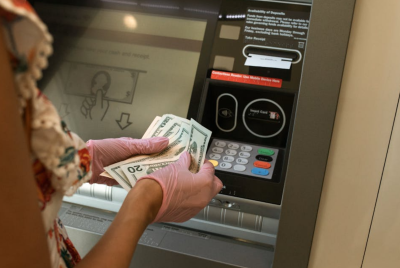Bitcoin ATM Scams Sweep US: Millions Lost as Pensioners Duped by Fraudsters

KEY POINTS
- Prosecutors allege Bitcoin ATMs are increasingly exploited by scammers, with one operator accused of charging up to 26% fees.
- Authorities warn seniors are being disproportionately targeted by crypto ATM fraudsters.
- Regulators say no legitimate bank or government agency will ever demand payment via Bitcoin ATM.
A wave of Bitcoin ATM scams sweeping the United States has left pensioners penniless and authorities scrambling to warn the public.
Law-enforcement agencies say criminals are exploiting the machines' convenience and perceived anonymity to drain victims' life savings, stealing millions of dollars through increasingly sophisticated fraud schemes.
The crisis has come into sharp focus after Maryland retiree Diane Reynolds revealed she lost her entire bank balance to scammers who convinced her to deposit cash into a Bitcoin ATM to 'protect' her money.
Reynolds said it began when a pop-up appeared on her computer claiming it had been hacked and urging her to call a so-called 'tech support' number.
'There was a voice message that said, "Don't turn your computer on, don't turn your computer off,"' she told CBS News. Panicked, she phoned the number and reached a fraudster pretending to be a cybersecurity agent. The scammer claimed hackers had infiltrated her bank account and told her the only safe option was to convert her savings into Bitcoin.
Reynolds withdrew $13,100 (£10,300), her entire balance, and fed the cash into a Bitcoin ATM at a local petrol station run by Athena Bitcoin. By the time she realised she had been deceived, her money was gone.
Prosecutors Target Operators
Washington, D.C. Attorney General Brian Schwalb has filed a lawsuit against Athena, alleging it failed to install adequate anti-fraud safeguards and instead profited from scams targeting vulnerable users.
'Bitcoin ATMs are a tool that scammers are using to separate people from their hard-earned money,' he said. 'Athena knows its kiosks are being used by criminals and yet has failed to put proper anti-fraud systems in place.'
Schwalb claimed the company charged fees as high as 26 per cent and that 93 per cent of deposits at its machines in the city were linked to scams, allegations Athena denies.
The company said it 'strongly disagrees with the claims' and insisted it has 'multiple safeguards' in place, including warnings and identity-verification prompts.
Reynolds has also filed her own civil case, with her lawyer arguing that the company is 'not just allowing the fraud to happen. They're profiting from it.'
Police in Michigan Take Action
The problem extends far beyond the capital. In Michigan, state police have begun physically visiting Bitcoin ATMs to tape warning notices on them after what they described as a surge in victims.
'Once you put money in, you're not getting it back,' said Lieutenant Ashley Miller of the Michigan State Police. 'There are scams daily. People are being scammed out of thousands of dollars.'
One of the worst cases involved a victim who lost around $400,000 (£316,000) through repeated Bitcoin ATM deposits. That incident, Lt Miller said, was a turning point.
'That loss was very significant. We needed to do something for our community.'
Troopers have since produced simple flyers that now hang beside ATMs across Traverse City and nearby towns. They warn of red flags such as being told a loved one is in trouble or being asked to lie to bank staff when withdrawing cash.
Losses in Michigan highlight the escalating threat. Residents lost $60 million (£47 million) to scams in 2020, a figure that soared to $204 million (£161 million) in 2024, a 240 per cent increase.
'Even if it saves one person, that's a win,' Lt Miller said. 'Hopefully someone reads the sign and calls police before they put money in the machine.'
Elderly Victims Targeted as Scammers Evolve
The US Federal Trade Commission and Better Business Bureau warn that elderly Americans are increasingly being targeted by fraudsters who exploit fear, urgency and confusion about digital currencies. Common ruses include fake computer alerts, romance scams and impersonation of banks or government officials.
Bitcoin ATMs, often found in petrol stations, convenience stores and supermarkets, have multiplied rapidly because they allow quick crypto purchases without involving banks. But that same ease of use has made them a favourite tool for criminals.
'Be Aware'
Reynolds, now a vocal campaigner for awareness, says her loss has become her mission.
'Now I'm an advocate for telling people this is real. Be aware,' she said.
Consumer-protection officials stress a simple rule: no legitimate business, bank, police department or government agency will ever demand payment via Bitcoin ATM.
Anyone asked to withdraw cash and convert it to cryptocurrency should stop immediately, ignore the pressure and contact police or their bank.
For victims like Reynolds, the lesson came too late. Authorities only hope that by speaking out, others will not fall for the same cruel trap.
© Copyright IBTimes 2025. All rights reserved.





















